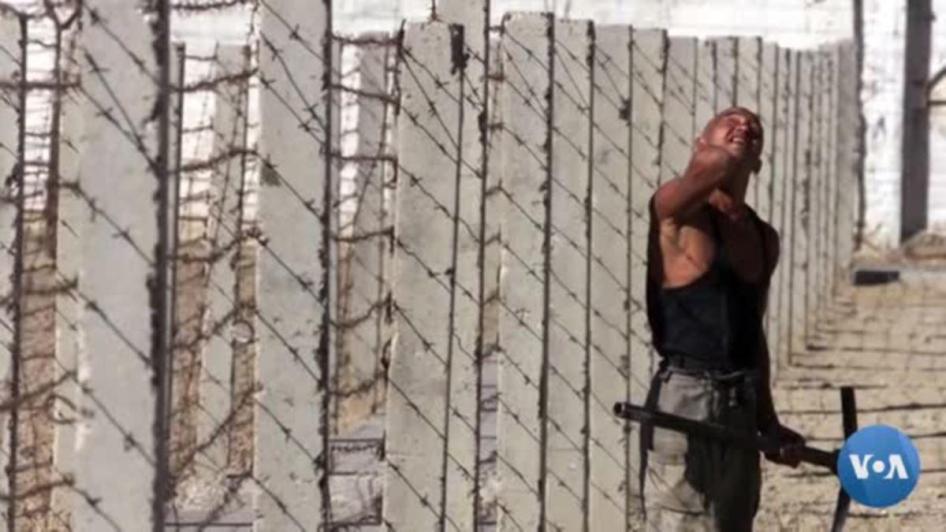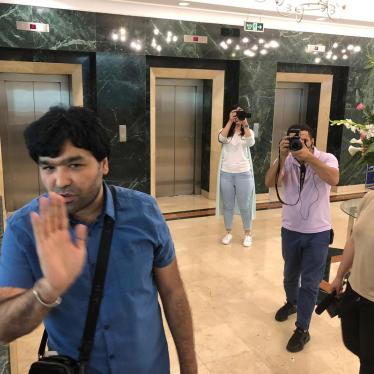In early August, Uzbekistan President Shavkat Mirziyoyev announced that the notorious Jaslyk prison would be closed. Jaslyk’s planned closure offers hope that Uzbekistan is on the path to making serious improvements in its terrible record on human rights.
Since it opened in 1999, Jaslyk stood as a symbol of Uzbekistan’s terrible human rights record, a “house of torture” for thousands of religious prisoners, government critics, and others. Some inmates never made it out alive.
Jaslyk, known for its hostile environment both outside and inside the prison, lies in a desert in the autonomous region of Karakalpakstan, northwestern Uzbekistan. It was here that stories first emerged of prisoners being tortured by immersion in boiling water; others were given electric shocks, had their fingernails removed, or given long stints in solitary confinement.
.@HRW's statement on closure of #Uzbekistan's notorious #Jaslyk prison. A very positive step & govt should allow #Uzbek society to study dark abuses of #Karimov era so that they will never be repeated, free remaining pol. prisoners, and register NGOs https://t.co/zdwncaYOjH
— Steve Swerdlow (@steveswerdlow) August 4, 2019
Foreign governments, UN bodies, and many local and international human rights groups – including Human Rights Watch – have for decades urged Uzbekistan to close Jaslyk. Human Rights Watch published many reports on Jaslyk and raised our concerns repeatedly with Uzbek authorities. We regularly urged the US and European governments to look beyond their own strategic interests, such as security ties with Tashkent, to call for Jaslyk’s closure.
Among dozens of HRW reports and statements on Jaslyk:
- In 2002, soon after the prison opened, we documented two “suspicious deaths with apparent signs of torture,” including evidence one of the victim’s bodies had been immersed in boiling water. These reports helped prompt a fact-finding mission to Uzbekistan by the UN Special Rapporteur on Torture, Theo van Bowen, who first called for the prison’s closure in his 2002 report.
- 1n 2009 we urged the European Union to raise human rights concerns in talks with Uzbekistan including torture in Jaslyk. Brussels should call for its closure, we argued.
- In 2013, in a submission to the UN Committee against Torture, we documented how Azam Formonov, a human rights activist, and Muhammed Bekjanov, a journalist, had both been tortured in Jaslyk. The UN Committee reiterated the call for Jaslyk to be shut down, but the Uzbek government rejected its demands.
- In a 2014 report on political prisoners in Uzbekistan, Human Rights Watch documented how Jaslyk was a lynchpin in Uzbekistan’s terrible prison regime
- In 2017, a year after Mirziyoyev took power, we urged him to implement UN recommendations and close Jaslyk and raised the issue of Jaslyk in numerous advocacy meetings with Uzbek officials.
- In 2018 and 2019 we documented the human rights struggle of several former Jaslyk inmates to obtain justice and compensation for the torture they endured there.
Jaslyk’s planned closure offers an opportunity for Uzbekistan to turn the page on a long, grim record on human rights. The Uzbek government should ensure this move is part of wider, long-overdue reforms of the penitentiary and judicial systems. Tashkent should also launch an independent inquiry into the abuses that took place there. Those responsible should be held to account; victims and their families should be compensated. Human Rights Watch’s work on human rights in Uzbekistan continues. There should never be another Jaslyk.









